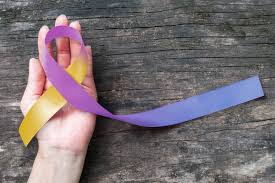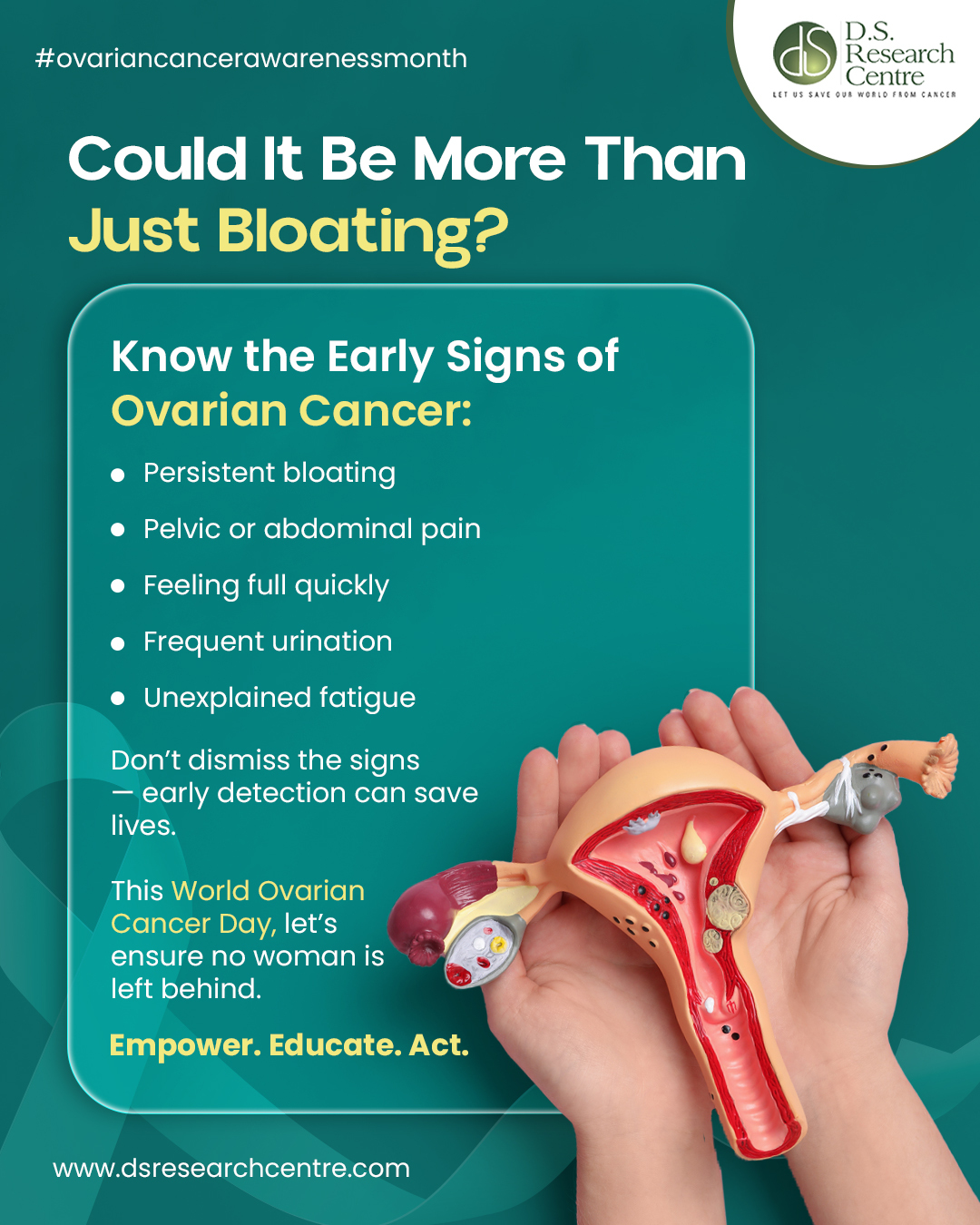Understanding Bladder Cancer
May is Bladder Cancer Awareness Month, a time
to shed light on this often overlooked but serious disease. Bladder cancer
might not always make the headlines like other cancers, but its impact can be
significant. Here's a closer look at what bladder cancer is, its risk factors,
symptoms, and why awareness is crucial.
The bladder is a hollow,
balloon shaped organ in the lower part of the abdomen that stores urine.The
bladder functions as areservoir and active excretory organ for Urine.
What is Bladder Cancer ?
Bladder cancer occurs when abnormal cells in
the bladder grow out of control. It typically starts in the lining of the
bladder and can spread to nearby tissues or other parts of the body if not
detected and treated early.
Types of Bladder Cancer
Different types of cells in your bladder can become cancerous.
The type of bladder cell where cancer begins determines the type of bladder
cancer. Doctors use this information to determine which treatments may work
best for you.
Types
of bladder cancer include:
·
Urothelial carcinoma
·
Squamous cell carcinoma.
·
Adenocarcinoma
Risk Factors
Several factors can increase the risk of
developing bladder cancer:
·
Smoking: Tobacco smoke contains
harmful chemicals that can damage the bladder lining, increasing the risk of
cancer.
·
Age: The risk of bladder cancer
increases with age, with the majority of cases occurring in people over 55.
·
Occupational Exposures: Certain
occupations, such as those involving exposure to chemicals used in
manufacturing, can increase the risk.
·
Gender: Men are more likely to
develop bladder cancer than women.
·
Chronic Bladder Inflammation:
Conditions such as recurrent urinary tract infections or bladder stones can
increase the risk.
·
Previous
cancer treatment. Treatment with
the anti-cancer drug cyclophosphamide increases the risk of bladder cancer.
People who received radiation treatments aimed at the pelvis for a previous
cancer have a higher risk of developing bladder cancer
- Personal
or family history of cancer. If you've had bladder
cancer, you're more likely to get it again. If one of your blood relatives
— a parent, sibling or child — has a history of bladder cancer, you may
have an increased risk of the disease, although it's rare for bladder
cancer to run in families. A family history of Lynch syndrome, also known
as hereditary nonpolyposis colorectal cancer (HNPCC), can increase the
risk of cancer in the urinary system, as well as in the colon, uterus,
ovaries and other organs.
Symptoms
Early detection is crucial for successful
treatment. Symptoms of bladder cancer may include:
·
Blood in the urine (hematuria),
which may be visible or detected through microscopic analysis
·
Frequent urination
·
Pain or burning during urination
·
Lower back pain
·
Pelvic pain
The most common types of treatments used for bladder cancer are
described below. Your care plan also includes treatment for symptoms and side
effects, an important part of cancer care.
·
Surgery
·
Chemotherapy
·
Immunotherapy
·
Targeted therapy
·
Gene therapy
·
Radiation therapy
Prevention
Although there's no guaranteed way to prevent bladder cancer,
you can take steps to help reduce your risk.
·
Don't smoke. If you don't smoke, don't start. If you smoke, talk to
your doctor about a plan to help you stop. Support groups, medications and
other methods may help you quit.
·
Take caution around
chemicals. If you work with chemicals, follow all safety
instructions to avoid exposure.
·
Choose a variety of
fruits and vegetables. Choose a diet rich in a
variety of colorful fruits and vegetables. The antioxidants in fruits and
vegetables may help reduce your risk of cancer.
·
Get Screened: If you're at higher risk or experiencing symptoms,
don't hesitate to talk to your doctor about screening options.
·
Spread the Word: Share information
about bladder cancer on social media, in your community, or with friends and
family.
Why Awareness Matters
Bladder cancer awareness is essential for
several reasons:
·
Early Detection: Knowing the
symptoms and risk factors can lead to early detection and improved treatment
outcomes.
·
Reducing Risk: Understanding the
risk factors can help individuals make lifestyle changes to reduce their risk
of developing bladder cancer.
·
Support and Resources: Awareness
campaigns provide support and resources for those affected by bladder cancer, including
patients, caregivers, and healthcare professionals.
·
Advocacy and Research: Increased
awareness can lead to greater funding for research and advocacy efforts,
ultimately improving treatment options and outcomes for patients.
Insights from Ayurveda
As an Ayurveda doctor, there is holistic
approach which includes prevention,
management, and treatment of disease through natural means.
In Ayurveda,the main reason behind Cancer is
vitiated Vata ,Pitta and Kapha Doshas.There is also the involvement of Agni -
digestive fire ,Sapta dhatus - body tissues, Strotasa -channels of the body
Factors such as poor diet, sedentary lifestyle,
exposure to toxins, and emotional stress can disturb dosha and predispose
individuals to cancer.
Prevention through Ayurveda
Prevention is key in Ayurveda. Simple lifestyle
modifications can significantly reduce the risk of bladder cancer:
·
Balanced Diet: Emphasize fresh,
organic fruits and vegetables, whole grains, and lean proteins. Avoid processed
foods, excessive caffeine, and alcohol, which can aggravate Pitta dosha.
·
Physical Activity: Engage in
regular exercise .
·
Hydration: Proper hydration helps
flush toxins from the body and supports bladder health. Drink plenty of water
throughout the day, preferably at room temperature.
·
Herbal Support: Incorporate
Ayurvedic herbs known for their detoxifying and immune-boosting properties.
Herbs such as Neem, and Guduchi , Amla(
Phyllanthus emblica) ,Pippali ( Piper
longum ),Haritaki (Terminalia Chebula),kanchanar ( Bauhinia variegata ),Turmeric
(Curcuma longa ) ,Ginger(Zinziber officinale ),Tulsi ( Ocimum sanctum) ,Black Pepper –(Piper nigrum ), Ashwagandha (Withania somnifera ) etc can
be useful.
If you experience any concerning symptoms or
have risk factors for bladder cancer, do not hesitate to consult a healthcare
professional. Early detection and intervention can significantly improve
outcomes for individuals diagnosed with bladder cancer.
By raising awareness and understanding bladder
cancer, we can make strides towards early detection, improved treatments, and
better support for those affected by this disease. Together, we can make a
difference in the fight against bladder cancer.
Let's spread awareness and empower ourselves
and our loved ones to prioritize bladder health.








Posted on April 15, 2016
Posted on April 15, 2016